
A Complete Guide to Every A Level Exam Board
Choosing the right A-Level exam board can significantly influence a student’s academic journey. While all boards adhere to national standards, each has its own approach to specifications, assessment styles, and resources. Understanding these differences can help students, parents, and educators navigate the challenges of A-Level study more effectively.
This guide will explore the key A-Level exam boards in the UK, breaking down their popular subjects, key features, and assessment styles to provide a clear overview of what each board offers.
Need personalised guidance on A Levels? Find expert support with Ivy Education
Need Further A Level Support?
What Are A-Level Exam Boards?
The main A Level exam boards in the UK are:
- AQA (Assessment and Qualifications Alliance)
- OCR (Oxford, Cambridge and RSA Examinations)
- Edexcel (Pearson Edexcel)
- WJEC (Welsh Joint Education Committee)
- CCEA (Council for the Curriculum, Examinations and Assessment)
2.0 Top
Key Differences at a Glance
| AQA | OCR | Edexcel | WJEC | CCEA | |
|---|---|---|---|---|---|
| Coverage | England, Wales | England, Wales | Global | Wales, England | Northern Ireland |
| Popular Subjects | English, Science | Computer Science | Business, Maths | Welsh, Drama | Irish, History |
| Assessment Style | Exams, Practical | Exams, Coursework | Exams, Modular | Exams, Coursework | Exams, Coursework |
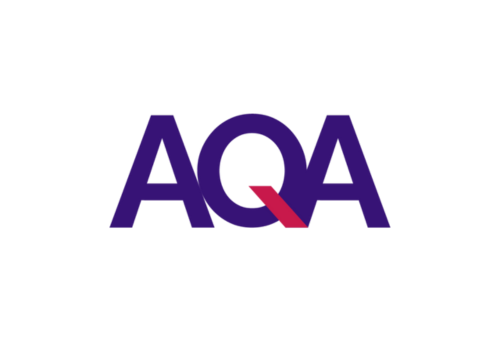
AQA (Assessment and Qualifications Alliance)
AQA is one of the most widely used exam boards in England and Wales. Known for its clarity and accessibility, it offers a broad range of A-Level subjects, making it a reliable choice for many schools.
Popular Subjects Offered by AQA
English Literature
AQA’s A-Level English Literature course encourages in-depth analysis and critical thinking. Students study a diverse range of texts, including poetry, prose, and drama, and are often required to compare texts across genres. Compared to other boards, AQA places a strong emphasis on independent critical interpretation.
Biology
AQA’s Biology syllabus is known for its balance between theoretical knowledge and practical skills. The course includes core topics like genetics, ecosystems, and cellular biology, with regular emphasis on experimental design and scientific analysis.
Psychology
AQA’s Psychology course is one of the most popular in the UK. It covers foundational topics such as memory, attachment, and psychopathology while also exploring research methods. AQA’s approach often includes real-world applications, making it highly engaging.
Sociology
AQA Sociology explores key social structures, including family, education, and crime. The syllabus emphasises theoretical perspectives and critical analysis of contemporary social issues
Key Features of AQA
AQA offers detailed specifications with clear assessment objectives, making it easier for teachers to plan lessons and for students to understand expectations. The board provides extensive support materials, including past papers, examiner reports, and marking schemes. AQA also places significant emphasis on developing analytical and evaluative skills across all subjects.
AQA Assessment Style
AQA assessments are predominantly exam-based, with coursework included in certain subjects like English and History. The exams focus heavily on applying theoretical knowledge to practical or real-world contexts.
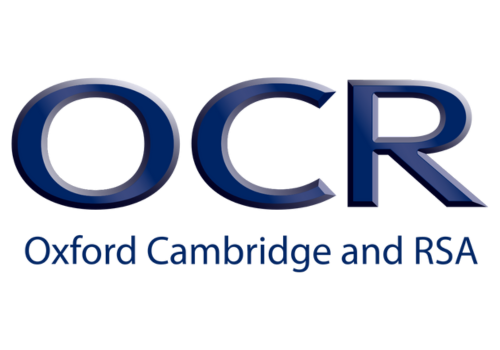
OCR (Oxford, Cambridge and RSA Examinations)
OCR is part of the Cambridge Assessment Group and is known for its innovative subject offerings and flexible course structures. It caters to a wide variety of teaching and learning styles.
Popular Subjects Offered by OCR
Computer Science
OCR’s A-Level Computer Science course is highly regarded for its practical programming projects and emphasis on problem-solving. It combines theoretical knowledge with hands-on coding experience, preparing students for careers in tech and IT.
History
OCR History offers a wide selection of modules, allowing schools to tailor the course to their strengths. Topics span medieval, early modern, and modern history, with detailed focus areas like the English Civil War and Nazi Germany.
Physics
OCR’s Physics syllabus balances theoretical physics with practical experiments. It covers key topics such as mechanics, thermodynamics, and quantum theory. The course includes assessed practicals, ensuring students develop hands-on experimental skills.
Religious Studies
OCR’s Religious Studies syllabus goes beyond traditional theology, incorporating philosophical and ethical studies. It encourages students to engage with complex moral dilemmas and apply critical reasoning skills.
Key Features of OCR
OCR is known for offering flexible pathways in many subjects, allowing teachers to adapt the course structure to suit their students. The board provides excellent teaching resources, including guides, professional training, and digital support tools.
OCR Assessment Style
OCR assessments typically involve written exams, but subjects like Computer Science and History include coursework or project-based assessments. Practical work is integrated into science subjects, ensuring students can apply theoretical knowledge effectively.
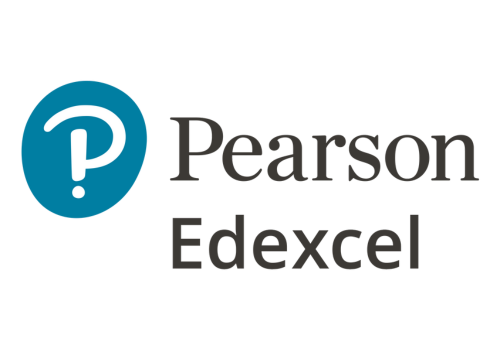
Edexcel (Pearson Edexcel)
Edexcel, managed by Pearson, is a leading A-Level exam board in the UK and internationally. Its qualifications are well-respected by universities worldwide.
Popular Subjects Offered by Edexcel
Mathematics
Edexcel Mathematics is widely regarded for its logical progression and clarity. The course is split into Pure Mathematics, Statistics, and Mechanics, with a heavy emphasis on problem-solving and real-world applications.
Business Studies
Edexcel’s Business Studies syllabus focuses on entrepreneurship, marketing, and finance. Students engage with real-world case studies and are encouraged to apply theoretical knowledge to practical business scenarios.
Economics
Edexcel’s Economics course balances microeconomic and macroeconomic principles. Topics include market failure, fiscal policy, and international trade. Assessments often require interpreting data and applying theoretical models to real-life economic situations.
Chemistry
The Edexcel Chemistry syllabus covers physical, organic, and inorganic chemistry in detail. Practical assessments are integrated into the course, and theoretical concepts are linked to real-world applications.
Key Features of Edexcel
Edexcel offers globally recognised qualifications, making it a preferred choice for international schools. Its syllabuses are clear and logically structured, and the board provides extensive digital resources to support learning.
Edexcel Assessment Style
Edexcel assessments are primarily linear, with exams taken at the end of the course. Some subjects, like Business and Chemistry, include coursework or practical assessments.
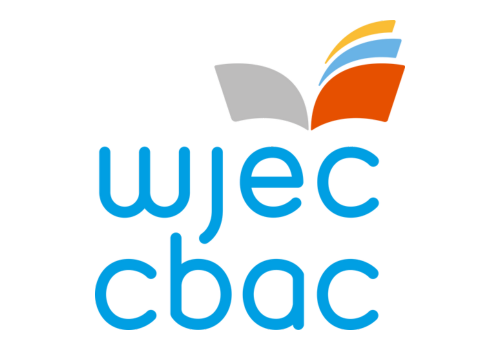
WJEC (Welsh Joint Education Committee)
WJEC primarily serves schools in Wales, offering qualifications that align closely with the Welsh curriculum. However, its A-Levels are also used in some schools in England.
Popular Subjects Offered by WJEC
Welsh (First or Second Language)
WJEC offers robust courses in Welsh as both a first and second language, promoting linguistic proficiency and cultural appreciation.
Drama
The Drama course emphasises both performance and critical analysis. Students study theatrical techniques and evaluate professional productions.
Geography
WJEC Geography balances human and physical geography, with case studies focusing on Welsh landscapes and global issues.
Key Features of WJEC
WJEC supports bilingual education, offering resources in both English and Welsh. Its strong focus on cultural and creative subjects sets it apart from other boards.
WJEC Assessment Style
WJEC combines written exams with coursework and practical assessments, particularly in creative subjects like Drama.
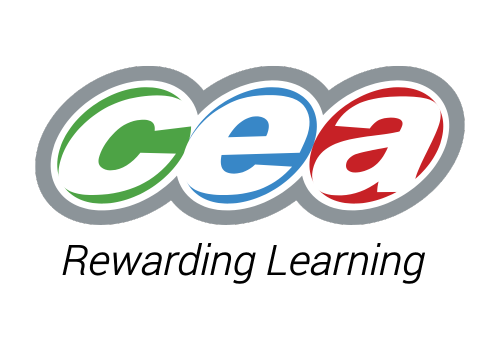
CCEA (Council for the Curriculum, Examinations and Assessment)
CCEA is the primary exam board for Northern Ireland, offering qualifications that reflect the region's educational and cultural needs.
Popular Subjects Offered by CCEA
Irish Language
CCEA’s Irish Language course combines grammar, literature, and oral communication, promoting cultural and linguistic preservation.
History
The History syllabus focuses on Northern Ireland’s unique political and social history alongside global events.
Religious Studies
This course explores theological principles, ethics, and moral philosophy, with relevance to contemporary social issues.
Key Features of CCEA
CCEA places a strong emphasis on regional identity, offering bilingual resources and culturally relevant content.
CCEA Assessment Style
Assessments include a mix of exams, coursework, and practical components, with regional examples often used in case studies.

Conclusion
Navigating the world of A-Level exam boards can be complex, but understanding the unique strengths and styles of each board can make a significant difference. Whether it’s AQA’s clarity, OCR’s flexibility, Edexcel’s global reach, WJEC’s bilingual support, or CCEA’s cultural focus, every student can find the right fit.
For expert A-Level tuition tailored to any exam board, Ivy Education is here to help. Our experienced tutors provide bespoke support to ensure success at every stage. Get in touch today to learn more!
9.0 Top
FAQs
While all exam boards follow the national curriculum, the way topics are presented, the depth of focus on certain areas, and the style of assessment can differ. For example, Edexcel might focus more on real-world applications in Mathematics, while OCR may emphasise problem-solving and programming skills in Computer Science.
The difficulty of an exam board often depends on the subject and the student's strengths. Edexcel Maths is known for challenging problem-solving questions, while AQA English Literature often requires deep comparative analysis. However, no board is universally harder — they all meet the same national standards. But if you're looking for the hardest A Level Subjects, we've written a blog all about this! Check out our guide on the top 10 hardest A Levels.
Switching exam boards mid-course is uncommon and can be challenging because syllabuses and assessment styles vary. However, private candidates can register with a different board if needed.
Yes, all A-Level qualifications are equally recognised by universities and employers, regardless of the exam board. The key is achieving strong grades rather than the choice of board.
Schools typically choose an exam board based on teacher familiarity, availability of resources, and alignment with their teaching style. Some schools may also choose different boards for different subjects.
Most exam boards provide free access to past papers, mark schemes, and examiner reports on their official websites. These resources are invaluable for revision and understanding exam styles.
Understand the syllabus for your specific exam board, practise with past papers, and familiarise yourself with the assessment style. Seeking support from tutors who specialise in your exam board can also provide targeted preparation.
Other Articles

A Level Grades Explained

What are A-levels?

Hardest A Levels 2025
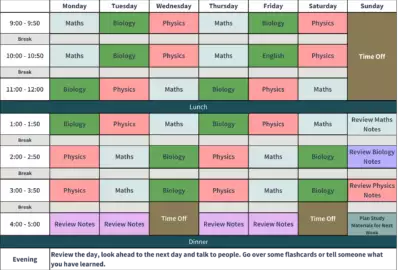
Free A Level Revision Timetable Template

A Level Maths Revision: The Ultimate Guide

How to Revise for A Levels












